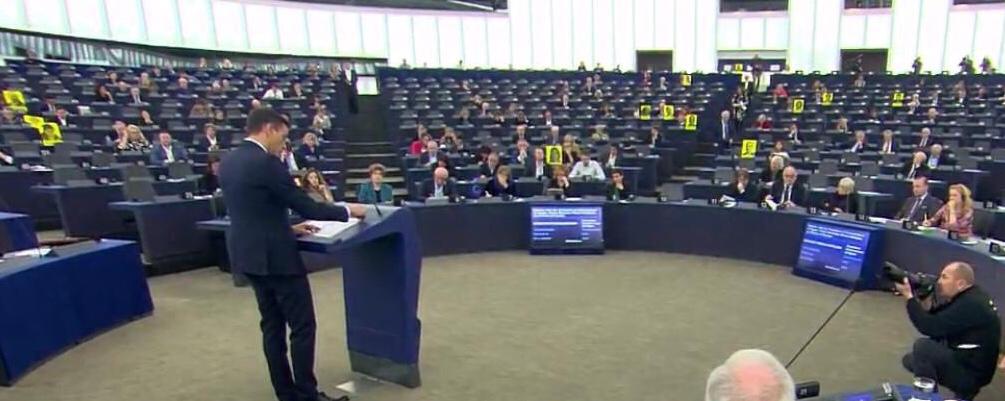23.12.2019 - 09:15
|
Actualització: 23.12.2019 - 10:15
The EU court confirming jailed leader Oriol Junqueras’ immunity on Thursday is having a direct impact on Spain’s presidency deadlock, which so far has caused two elections and so far eight months of an interim Socialist government. Luxembourg judges said that Junqueras should have been freed in June in order to take up his seat as MEP after being elected by voters in the May European election. Yet, the court did not specify if he still has to be freed, because he was then in provisional detention, but now he is serving a sentence.
Now it is up to Spain’s Supreme Court to free Junqueras – the judges in Madrid have given until January 3 to all sides in the Catalan trial to have their say before deciding. One of the parts is the solicitor general, representing the Spanish government, and pro-indepdendence Esquerra believes the Socialists can influence the institution. Socialist Pedro Sánchez aims to stay in power, but he needs Esquerra to have enough supports in Congress.
Move repression away
“The new political era can only begin if politics move away repression, is it clear enough?,” said on Saturday Esquerra’s top official in the Catalan government Pere Aragonès, in the party’s political conference. Aragonès demanded the “immediate” release for Junqueras after the EU court ruling, two days after the party announced that their talks with the Socialists would halt until the solicitor general has its say on the imprisoned politician’s case.
Yet, he also defended dialogue in order to find a way out of the Catalan crisis, and said Esquerra has to play the “ice-breaker” role in negotiations with Spain. The party does not rule out resuming the talks with the Socialists from December 27 and that Sánchez is invested by January 5 – but they want first to see the solicitor general’s view.
With an overwhelming majority (93.5% of the votes), Esquerra’s party conference passed a text on Saturday to “move towards independence with any democratic and peaceful path,” through a referendum but prioritizing an agreed one with Spain.
Socialists take cautious approach
Meanwhile, the Socialists have not explicitly stated what the Supreme Court should decide, and only said it has to abide by the European ruling. “Luxembourg court is also a court for Spaniards,” said Spain’s acting vice president, Carmen Calvo on Saturday, taking a cautious approach on the issue.
Unidas Podemos, the party that will share the government with the Socialists if Esquerra supports the deal, continues putting pressure on the pro-independence force. On Saturday Barcelona’s mayor, Ada Colau, head of Unidas Podemos’ Catalan allies, urged Esquerra to back Sánchez: “We have to demand ourselves cool head, serenity, responsibility, intelligence and political bravery to make a progressive government possible.”
As for the Spanish right-wing parties – expected to remain in opposition, although their support to Sánchez would unlock the deadlock without Esquerra’s need –, they demand the Socialists to stop talks with the pro-independence camp. Ciutadans’ Lorena Roldán called on Spain’s acting president to not give in to Junqueras’ “blackmail.”


